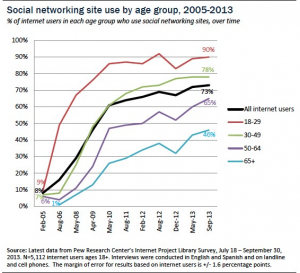Marketers, Stop Apologizing: It’s OK To Use Data
Like medieval monks lashing themselves for past sins, marketers have been wincing in shame at their data behavior. The flood of webinars, white papers and new technology announcements related to Google’s decision to end third-party cookies (a move now slated for 2023) have essentially apologized for targeting, presuming that marketers will retrench from most online one-to-one tracking.
So let’s pause and consider something radical. What if it’s OK to track consumers individually? In fact, what if marketers have a moral mandate to personalize advertising? Let’s explore some facts the industry narrative overlooks.
Consumers need advertising. Admit it: While surveys show that most consumers dislike advertising and online tracking, they depend on billions in advertising to support their universe of unpaid content. Only 16% of Pandora users pay the subscription fee to avoid the ad clutter. Facebook could remove all ads entirely if its 2.8 billion users paid $3 a month for membership – about 10 cents a day! — but we won’t. So, advertising is essential.
Beyond subsidizing media, advertising boosts our economy. The Association of National Advertisers estimates U.S. ad spend accounts for $7.4 trillion in product and service sales. That’s one-third of our GDP tied to marketer intrusions. If you like your job or want your company to succeed, advertising is vital. Any big moves that reduce advertising effectiveness will be like letting air out of your car tires: The economy won’t hum along.
For advertising to succeed, marketers need targeting data. In the 1970s, if you wanted to reach people in market for a new car, you’d have to run ads in a magazine known for car reviews, a pretty blunt “content proxy” approach. Today, online data monitoring picks up signals of people actively searching for any product, even people who have visited a retail location. Data matches message to human interest, and suddenly, advertising works.
The outcry over cookies is exaggerated. Even if every third-party cookie were vaporized tomorrow, the giants in the online industry — Apple, Amazon, Google, Facebook — would still pick up so many data signals that “online privacy” is still nonexistent. Search for a hammer on Google and within minutes your email receives a hammer ad. Amazon likely knows the brand of dishwasher in your kitchen based on your thousands of shopping clicks there. Instagram watches what you Like to immediately serve related ads. Digital cookies are only one part of how marketers track and target, and if anything, they’re already the smallest tool in the arsenal.
Yes, there is a line where too much surveillance is creepy. People do have a right to adequate privacy, and no one wants drones peeking in their bedroom window. But advertising supports the economy, to the tune of billions of dollars — and that requires data.
So stop apologizing, marketers. Go find more data. Make ads even more personal. The worst thing that will happen is you may tell someone about a car they find interesting.
(40)
Report Post






